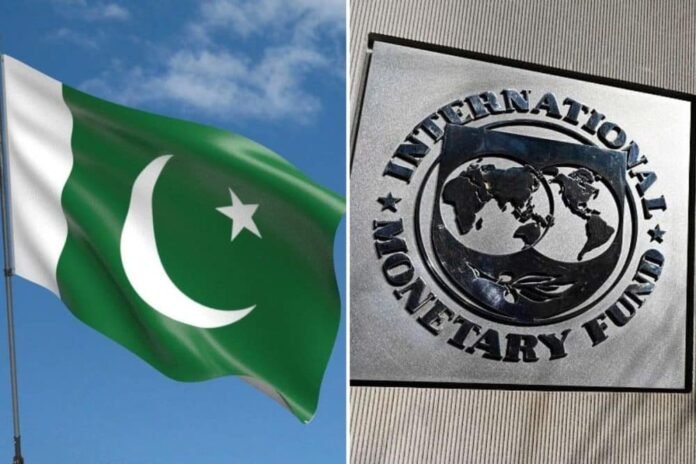The International Monetary Fund (IMF) has objected to several controversial tax proposals by the Pakistani government, including a capital value tax on moveable assets and a 5% federal excise duty on one-day-old chicks. These measures, aimed at boosting revenue, have been criticized for reflecting a “business-as-usual” mindset within the tax machinery, according to sources within the Federal Board of Revenue (FBR).
While rejecting those specific taxes, the IMF did approve a proposal to tax digital services, projected to generate Rs10 billion in revenue. FBR officials revealed that other proposals under consideration include raising the tax on dividend income from mutual funds from 15% to 20%, and increasing the withholding tax on interest income from 15% to 20%.
The government is also weighing the withdrawal of income tax exemptions for venture capital companies and funds, as well as the removal of existing tax relief for the cinema industry. Additionally, there has been no progress on reducing income tax rates for the top slab of 35%, and the 10% surcharge on monthly incomes exceeding Rs500,000 is likely to remain.
However, some relief is expected for lower-income groups. The IMF has agreed to reduce tax rates for the lower four income slabs. Although it did not approve increasing the exemption threshold to Rs1.2 million annually, it did allow the rate to be lowered from 5% to 1%.
“The government wanted to reintroduce the wealth tax in the form of a capital value tax on all moveable assets, excluding shares of listed companies,” said senior FBR officials, adding that this proposal had reached the desk of Prime Minister Shehbaz Sharif. The FBR had hoped to tax cash balances in banks and other moveable assets like gold to enhance revenue, but the IMF opposed the idea. “The IMF did not endorse the proposal on the grounds that the government should tax income instead of taxing wealth,” said the officials.
The CVT concept is not entirely new. Through the Finance Act 2022, the government introduced a 1% CVT on foreign assets worth over Rs100 million owned by resident Pakistanis, though the law has been challenged in the courts.
On Tuesday, the finance ministry and FBR briefed Prime Minister Shehbaz Sharif on the broad contours of the upcoming federal budget, including the measures cleared by the IMF. However, some matters remain unresolved, including proposed relief for the real estate sector and final decisions on the capital value tax.
President Asif Ali Zardari has convened a session of the National Assembly for June 10, during which Finance Minister Muhammad Aurangzeb will present the new federal budget. The Economic Survey of Pakistan is scheduled to be released on June 9, coinciding with the third day of Eid.
The controversial 5% excise duty on one-day-old chicks also faced rejection from the IMF. “It pointed out that, on one hand, the FBR claims there are high taxes on food in Pakistan, and on the other hand, it recommends such proposals,” said sources. The IMF’s objection was rooted in the measure’s narrow focus, as it targeted a specific industry rather than broadening the tax base. Furthermore, “the FBR did not conduct any study before proposing the tax on chicks, which are an essential food item.” The proposal stemmed from a tax dispute involving a single poultry company, highlighting the superficiality of the idea.
Last month, President Zardari issued the Tax Laws Amendment Ordinance, 2025, which included a new section, 175C, in the Income Tax Ordinance. This was seen as a move influenced by the same poultry case.
Other proposals being considered include imposing a 5% excise duty on all processed foods, such as chips and biscuits. If enacted, the combined effect of sales tax, further tax, and withholding tax could push the total taxation burden on processed foods to nearly 29%.
The prime minister reportedly opposed a proposal to double the excise duty on fertiliser and raised the issue during negotiations with the IMF. However, the IMF insisted the government honour its earlier commitments. Sources indicated the government might ultimately increase the fertiliser excise duty to 10% and introduce a new 5% duty on pesticides.
“The prime minister was told that the budget numbers had been locked with the IMF,” said sources. The FBR’s revenue target for the next fiscal year is expected to be Rs14.130 trillion, while non-tax revenue is projected at Rs4 trillion. Combined, this sets a total revenue target of Rs17.1 trillion.
The federal government has been allocated Rs1.186 trillion in budget subsidies, including Rs1.036 trillion earmarked for the power sector. For IMF programme compliance, the federal development budget is likely to be capped at Rs873 billion. Provincial development budgets are estimated at Rs2.1 trillion, approximately Rs700 billion lower than what the provinces had initially planned.
The IMF has authorised both federal and provincial governments to spend Rs22 trillion in current expenditures, with total spending by all five governments expected to reach Rs25 trillion for the fiscal year 2025–26.
Read More : India Failed to Undermine Pakistan Diplomatically, Says Deputy PM Ishaq Dar





